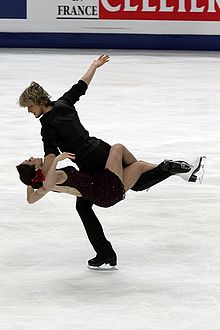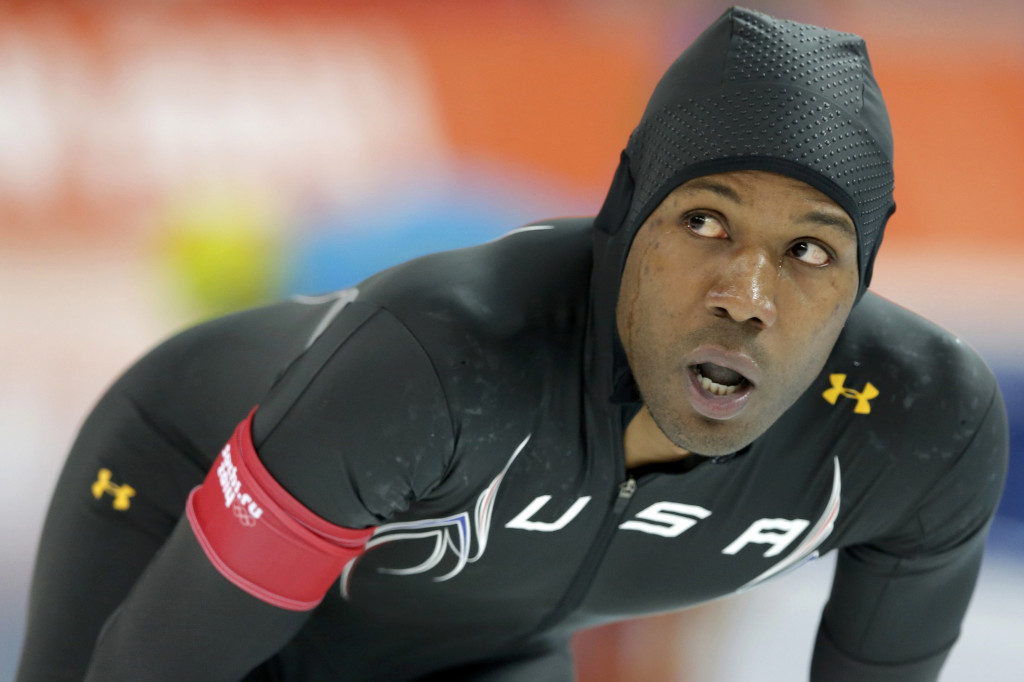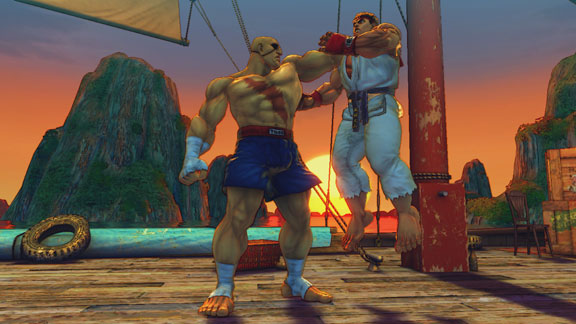I like watching competition. Competition remains one of those indelible fixtures of human life, from the ancient Olympics of antiquity to, hey, the Olympics of today. Although I lament the fact that Belgian bureaucrats bankrupt countries, turn host cities into police states, and openly take bribes, I am happy that they continue. Who doesn’t want people to invest all their work ethic and talent into a single activity for the purpose of winning shiny medals?

Every two years or so, a dazzling array of activities you assumed (or didn’t know existed) suddenly become the talk of the town and the undeniable focus. You guys watch the Superbowl; I’m gonna watch these people play for greatness without any kind of monetary compensation (at least for Americans). They work for the purity of competition, and while some of them obviously don’t do their best on game day, they certainly came far to qualify for their country’s respective Olympic teams.
That sort of dedication to whatever inane activity (the ice dancing…) belies all of that, though. You can tell the difference between someone who’s on the top of their game, someone reaching the peak of their athletic prowess and ability, versus just some guy making horrible excuses for their failure. Cue the U.S. speed skating team, which utterly failed to produce much of anything in the way of results during the Sochi 2014 games.
I would call myself something of a nationalist, so I cheer for my own nation in every event. But what I don’t enjoy, of all things, is Shani Davis, two time Gold medalist, telling me that he doesn’t know why he lost. Is it the suits? Are the suits prevented you from speed skating faster? Apparently not; even replacing the suits, he didn’t even place in medal contention. This guy, who set the world record in the 1000m, who won the World Cup in this event several years in a row, can’t even get out of 9th place. And then he has the gall to say that “it wasn’t his fault”. As the 1500m showed, though, it was his fault.

I only point out Davis here due to him being the guy they interview for these things, but can we truly blame the whole of this on exterior factors? Why can’t he take responsibility for the failure and move on? The reporters couldn’t even eke that out of him! Plenty of other Olympians will tell you they did poorly; Ted Ligety says he “choked”, as apt a comparison as any, and even Lindsey Jacobellis, who can’t seem to make it out of qualifiers during the Olympics, know with utter clarity what she did bad. But not Shani Davis!
It irritates me out of my mind, and yet we all hear this sort of reaction. Video game competition, especially, tends to cause that sort of response. Unlike, say, racing, so many different elements come between you and the rules of the game, from the controls to the possibility of HD lag on your monitor to emotional/psychological factors impairing your ability to think straight. So many places exist for the purpose of blame that, theoretically, anything could cause your loss and your opponent’s victory. The sore loser calls “cheap”, and this makes him feel much better about himself. Unfortunately, that train of thought doesn’t cause much self-improvement.
I remember during the original heyday of the 2D fighter; the rules for “true” play weren’t yet set in stone, and most game tend to devolve into house rules rather than how it was designed. In Monopoly, for example, Free Parking does not actually give you free money when you land on it. Read the instruction booklet, I kid you not. In the same way, Street Fighter II always held some strange restrictions. You cannot sweep all the time, that’s cheap! Stop throwing me, that’s not right or “fair”. I mean, who came up with this stuff? Of course throwing and sweeping work, otherwise they wouldn’t fit into the game systems. You need throws or blocking become too powerful; sweeps turn into powerful tools for wakeup situations, forcing an opponent to fear it by blocking low. Each requires a different response, and the fact that you, personally, cannot adapt does not mean we need to change the rules.

I do not like everything even in the video games I like. Critical analysis requires that mode of thought, but I accept elements in a holistic manner. How do they work within the rules? Why did the developer place them there? Even if the execution requirement’s high, or I can’t do it easily in competitive play, does not suddenly makes this a “cheap” tactic. It does not allow me to flee from the responsibility of the match, the race, and the situation. When you blame, the only person you hurt the most is you. Get over yourself, quit think you’re the best, and actually attempt to be the best. Coasting on your laurels, a false sense of superiority, or otherwise will always hurt you in the long run. Playing “for fun” means playing “to win”; losing isn’t fun. Or, at the least, it shouldn’t be. If anything, losing means learning so you can start winning.
The fighting game community calls such players “scrubs”, and the name connotes negative reactions, I’m sure. Seth Killian wrote about this AGES ago in an article titled “On Cheapness“:
Ah, the call of the scrub. They bleat out something like this to attract others of their sad species (known in layman’s terms as “losers”), who will feel sorry for them, and commiserate about the unfair tactics of their shamefully dishonorable tormentors (more commonly known as “winners”). They play the game in a little world of make-believe where they all aspire to earn the respect of their fellow losers, and to play with “honor” (even though no one’s quite sure what that means).
This sort of discussion just isn’t interesting. “Cheap” really means something that arises out of unintentional design flaws that provide enormous advantage for little effort. Camping in Call of Duty isn’t that. Picking top tier characters in a MOBA isn’t that. And heck, even picking Cammy isn’t that (although in SFIVAE, she’s pretty brain dead). You being bad at the game, or playing with made-up house rules in a competitive environment, is not “cheap”; you are being dumb. Heck, if it’s not making you a better person, stop competing. Or, as 2 Timothy 2 says:
3 Suffer hardship with me, as a good soldier of Christ Jesus. 4 No soldier in active service entangles himself in the affairs of everyday life, so that he may please the one who enlisted him as a soldier. 5 Also if anyone competes as an athlete, he does not win the prize unless he competes according to the rules.
Competition, though not necessarily advocated in the Bible, does arise as an extended metaphor for the purpose of self-improvement in 1 Corinthians 9:
24 Do you not know that those who run in a race all run, but only one receives the prize? Run in such a way that you may win. 25 Everyone who competes in the games exercises self-control in all things. They then do it to receive a perishable wreath, but we an imperishable. 26 Therefore I run in such a way, as not without aim; I box in such a way, as not beating the air; 27 but I discipline my body and make it my slave, so that, after I have preached to others, I myself will not be disqualified.
I don’t want to be disqualified. In the Christian’s case, we do not write the rules, nor do we abscond from our duty. But, in all ways, we must compete in our goals, our striving, and our failings with the same drive and focus required for any success in sports. We run with an aim and a goal; don’t make excuses. Jesus certainly didn’t.
Or end up like Shani Davis (ok, I kid).
POSTSCRIPT: I want to clarify that I am not specifying any kind of particular Christian activity or action in this essay. Just in competitive environments in general.
